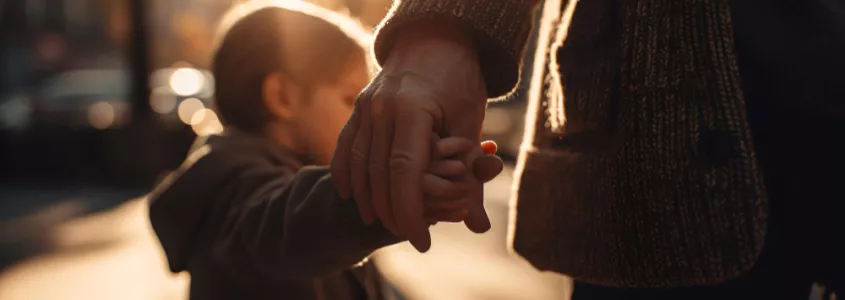
Table of contents
When there is a single-parent custody regime, the minor children must live with one of the two parents. This can happen either by agreement of the parents when drawing up the separation or divorce agreement or by decision of the judge, who in any case is the figure who has the final say.
However, as children grow up, it is common for them to develop an opinion or preference in this respect. That is why in this article we want to answer the question of at what age a child can choose who to live with, as it depends on many more factors than one might imagine.
What does the law say?
Minors can express their opinion about who they want to live with both at the time of separation or divorce and at a later date. In this regard, the first legal text to which attention should be paid is Article 9 of Organic Law 1/1996, of 15 January, on the Legal Protection of Minors, which amends several articles of the Civil Procedure Act and the Civil Code.
Specifically, the aforementioned article establishes that, if the separation or divorce process is carried out by contentious means (without mutual agreement), there is an obligation to listen to the opinion of children of 12 years of age or older. Also children under that age, but only if the judge considers that they are sufficiently mature.
In the case of a divorce or separation by mutual agreement, the opinion of the children will be taken into account whenever they request it or at the request of the Public Prosecutor's Office or the members of the judicial team responsible. In this regard, if the judge deems it necessary, he or she may request the opinion of qualified specialists to assess the best option.
The examination of the child
The right of children to be heard in these proceedings is known as the ‘hearing of the child’. However, this is not a binding statement, but evidence that will be assessed by the judge, always taking into account what is in the best interests of the child.
But what does this test consist of? None of the above-mentioned laws regulate it explicitly, although they do give indications as to how it is to be carried out. For example, they state that it should be carried out in a way that preserves the child's privacy and uses language that is understandable to the child. It should also be made clear to the child that his or her opinion is not binding, i.e. the judge may decide against it if he or she deems it reasonable.
The psychosocial report
On the other hand, beyond the aforementioned ‘examination of the child’, the judge has the power to obtain a psychosocial report, which must be drawn up by psychologists and court workers. In it, these professionals will not only give the child's opinion, but will also determine the child's relationship with his or her parents and which of them is in the best position to maintain his or her routines and provide social and economic stability.
Conclusions
All that we have discussed above translates into a number of aspects that need to be made clear. For this reason, we believe it is appropriate to detail them separately.
Where should children of separated parents live?
This question depends on each individual case, so it will always be the judge who has the final say. In fact, although it is not usual, he or she can make a decision contrary to the provisions of the agreement that the two ex-spouses have agreed on if he or she believes that there is another better option for the minor children.
How old can my child refuse to go with his or her parent?
Actually, never as long as he or she is a minor. It is true that, at the age of 12, the law recognises a ‘presumption of maturity’ and gives them the right to express their opinion. However, until he or she comes of age, it is up to the judge to decide with whom he or she should live.
What if my child wants to live with me?
If he or she does, proceedings must be initiated to amend the terms of the separation or divorce agreement. In this, the child may request the above-mentioned ‘child exploration’ test and the parent may also ask for a psychosocial report.
However, as we said above, it will be the judge who will ultimately decide, always taking into account these reports and giving absolute priority to the best interests of the child. Therefore, the mere fact of expressing your opinion is not enough to change your guardianship and custody in the case of single-parent regimes.
With this, we think we have made the answer to the question of at what age a child can choose with whom to live quite clear. As you will have seen, although their opinion will be taken into account from the age of 12, the final decision will always rest in the hands of a judge.

"Anywhere in Spain"
With our online appointment system you will have immediate advice without the need for face-to-face visits or travel.
One of our lawyers specialized in your area of interest will contact you to formalize an appointment and make your consultation by video call.

Add new comment